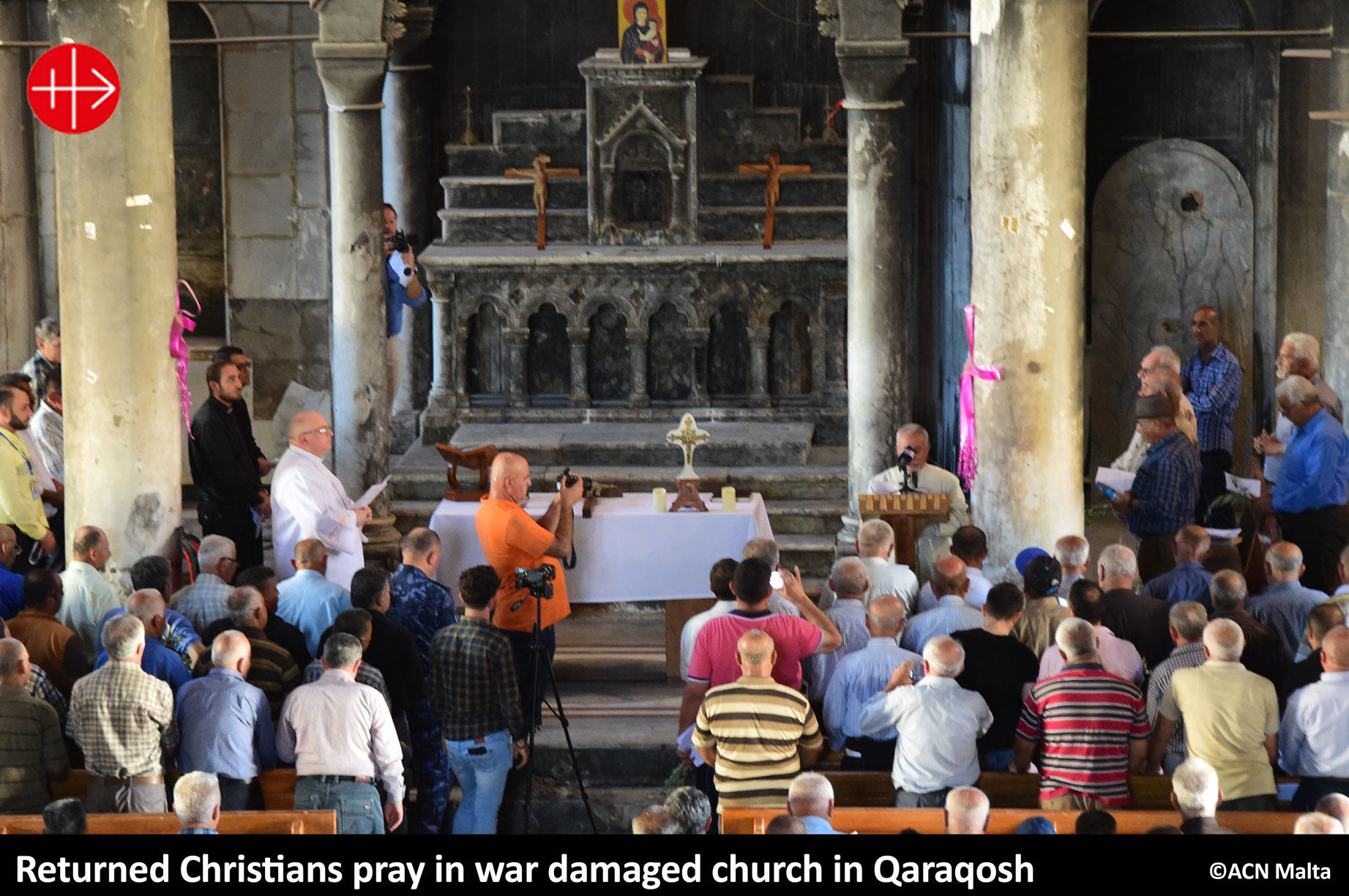IRAQ
West must act now to save Iraqi Christians
The timing could not be better. In an Oct. 25th address, Vice President Mike Pence conveyed President Trump’s pledge that the US Government will channel aid more directly to Christians, Yazidis and other persecuted religious minorities in Iraq.
The vice-president pledged that “the United States will work hand in hand from this day forward with faith-based groups and private organizations to help those who are persecuted for their faith.” The US, he said, “will no longer rely on the United Nations alone to assist persecuted Christians and minorities in the wake of genocide and the atrocities of terrorist groups.”
Ever since the US Government recognized the crimes of IS against Christians and other minorities as genocide, political leaders, prelates and the faithful have been clamouring for the release of USAID funds to benefit the reconstruction of the Nineveh Plains. Their cry has finally been heard.
Significant funding is desperately needed to repair thousands of family homes and the battered infrastructure in nine Christian towns on the Nineveh Plains. However, at this very writing, political action is an equally urgent need for Iraqi’s faithful: Iraqi forces and Kurdistan’s Peshmerga units appear inches away from a military clash that threatens to engulf the Nineveh Plains in another round of violence and destruction.
In the summer of 2014, ISIS invaded the region and chased more than 100,000 Christians from their homes and properties. Most of these families spent three years as Internally Displaced People in Erbil, Kurdistan, hoping and praying for a chance to go home again. The defeat of ISIS in Iraq made that a possibility.
Nevertheless, an all-out battle between Baghdad and Erbil may close that window of opportunity for good. Already, the Chaldean town of Teleskuf—which in recent months saw the return of close to three-quarters of its former Christian residents—is now experiencing a new exodus of faithful; in the wake of mortar shells landing in the town some 850 families have fled and are reliving a nightmare. Local sources report that Christians in neighbouring towns are preparing for the worst as well.
These families will most likely choose exile or emigration rather than pin their hopes on a highly unlikely second homecoming. If a new war breaks out in the region, there is no telling if Kurdistan could again be a safe haven for displaced Christians and other minorities. Remnants of IS and other Islamic extremist groups are likely to take advantage of the chaos of another conflict.
The US, in tandem with its Western and regional allies, must move quickly to broker an enduring peace between Baghdad and Erbil, an accord that forces both sides to make concessions under threat of losing Western economic and diplomatic support. Baghdad’s wish for territorial integrity must be balanced with Erbil’s aspiration for genuine autonomy. The US, too, must be willing to use its clout to curb Iranian and Turkish ambitions in the region.
The political muscle must back up the US pledge of more generous and efficient funding for the rebuilding of Iraq’s Christian heartland—and that must happen now! Time is very, very short. And, no matter what happens next, the President’s pledge must be made real by the immediate funding and empowerment of local faith-based and private NGOs. The survival of Christianity in Iraq hangs in the balance.





